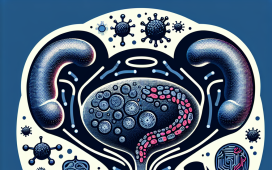Medical decision-making is a complex process that involves weighing the risks and benefits of different treatment options. It can be especially challenging when faced with complex cases.
There are a number of factors that can make a case complex, such as:
- The patient’s medical history: A patient with a complex medical history may have multiple co-morbidities that can complicate treatment decisions.
- The patient’s preferences: The patient’s preferences should always be taken into account when making treatment decisions.
- The availability of treatment options: The availability of treatment options may be limited in some cases, which can make decision-making more challenging.
- The uncertainty of the outcome: The outcome of treatment is not always certain, which can make decision-making more difficult.
When faced with a complex case, it is important to gather as much information as possible to make the best possible decision. This may involve consulting with other experts, such as other doctors or specialists. It is also important to consider the patient’s preferences and the available treatment options.
Once all of the information has been gathered, the doctor can begin to weigh the risks and benefits of different treatment options. This is a complex process that requires careful consideration of all of the factors involved.
In some cases, there may be no clear right or wrong answer. The doctor may need to make a judgment call based on the best available information.
The art of medical decision-making is making the best possible decision for the patient, given the available information and circumstances. The science of medical decision-making is using evidence-based medicine to inform decision-making.
As technology advances, we can expect to see even more sophisticated tools that can help doctors make better decisions. However, the art of medical decision-making will always be an important part of the practice of medicine.
Here are some additional tips for making medical decisions in complex cases:
- Get a second opinion: If you are unsure about a treatment decision, it is always a good idea to get a second opinion from another doctor.
- Consider all of your options: There may be more than one treatment option available for your condition. It is important to consider all of your options before making a decision.
- Talk to your doctor about your preferences: Your doctor should be able to help you understand the risks and benefits of different treatment options. They should also be able to help you make a decision that is in line with your preferences.
- Don’t be afraid to ask questions: If you don’t understand something, ask your doctor to explain it to you. It is important to be an informed patient so that you can make the best possible decision about your care.
Making medical decisions can be a difficult process, especially when faced with complex cases. However, by following these tips, you can make the best possible decision for your health.








